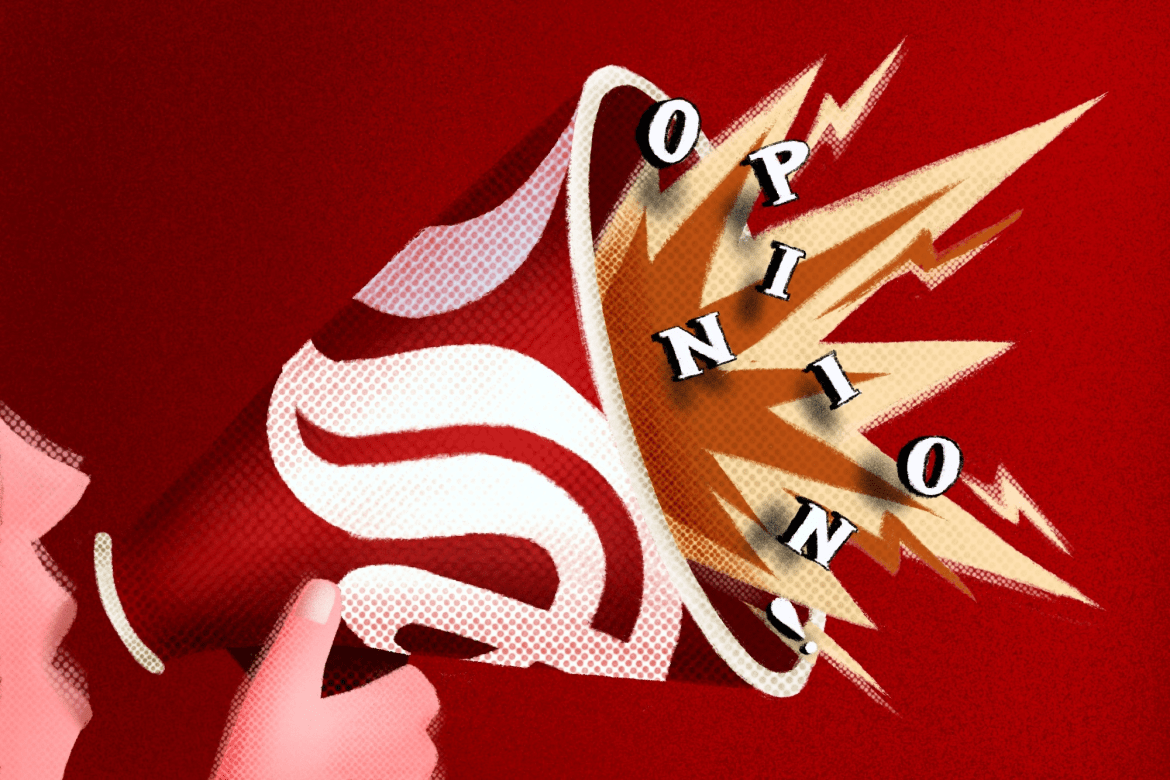My name is Sriram Parasurama and I am a second year PhD student in the Horticulture Graduate School of Integrative Plant Sciences. I research how trees in our local forests interact with fungi in the soil and how this interaction affects the web of ecology throughout the ecosystem. I was arrested on October 9th outside my home for alleged actions at the closed career fair that took place at Statler on September 18th and have since been suspended and banned from campus. I am being punished without due process because I am considered an “imminent danger to public health and safety.” However, suppressing my voice, the University administration has done the impossible – politicized the apolitical.
The College of Agriculture and Life Science has long been a cornerstone of this University’s popularity and earnings, with plant breeding and veterinary science programs that are among the best in the country. Although it is not a major focal point of campus life, it attracts the attention of wealthy donors and government representatives, such as Senator Chuck Schumer who supports the development of a new XLEAP (X-ray beam for Life Sciences, Environmental Sciences , Agriculture and Plant Sciences) facility or Lisa Yang donating the Wildlife Health Center. Among scientists in these fields, there has long been a reluctance to acknowledge political issues, with many choosing to follow the so-called “objective” or “impartial” path. For myself, my studies have always been political: my ability to conduct fieldwork hinges on Cornell’s historic and ongoing misappropriation of land through the Morrill Act. Each new generation of scientists has slowly come to understand that their work cannot continue to be meaningful if it occupies an apolitical sphere, but has yet to find the spark to act.
That is exactly what the administration has given us through my discipline: a motive to act. The moment I shared the news of my arrest and suspension, SIPS graduate students found the spark they needed. Many came together to organize their peers to meet with faculty, write letters of support, and voice dissent with the University administration. It is an unprecedented level of political activism largely unseen in the scientific community on non-climate issues. The Cornell administration has also slowly undermined their stability in CALS through failed promises made to Indigenous students in AIISP, an already deeply politicized group. With Indigenous student recruitment at an all-time low and Indigenous faculty leaving the program, collective anger and dissent within CALS has continued to grow. The College is a major source of public funding at Cornell, and given the growing pressures and threats to their tax-exempt status from the Committee on Ways and Means, CALS is poised to deliver a major blow to the institution’s bottom line, the basis for which the administration has submitted to us.
It has been beyond inspiring to watch my peers among SIPS go from friends to devoted comrades and political allies. The gravest mistake our administration has made is underestimating the love we have for one another among the plant science community, a group dedicated to studying the tools of life. I often find beautiful parallels between the systems I study, the symbiosis of fungi and trees, and the depth of community and the truly relational nature in which the graduate student community works together. When the tree experiences stress, the fungi help take in nutrients and help recruit other microbes to help. I see the same network among the great forest of beautiful people in SIPS. There has never been a generation of more passionate, empathetic, and driven scientists at Cornell, and the administration has lit a flame in all of our hearts that cannot be extinguished. We are all awakening to the scientist’s ultimate responsibility—the unfettered defense of life and truth. We make a commitment to the honest pursuit of knowledge and, like any form of knowledge, it comes with a responsibility to act. If we do not act on the knowledge of this genocide in Palestine, in which over 200,000 Palestinians have been killed since June 2024 by bombs funded by our school, then who are we as scientists? As we watch the mass murder of children unfold on our phone screens, who are we as empathetic human beings?
In many ways, I see the University as a microcosm of empire through its mass surveillance, respect for profit, and exploitation of its labor. And, like all empires, it digs its own grave by oppressing its masses in the name of greed and extraction. As we experience the effects of the imperial boomerang on our institutions, students are finding the strength and determination to fight for a free Palestine and a liberated future full of love, empathy and reciprocity. Those passionate enough at SIPS are gathering on Friday, November 15th at 3:00pm outside Mann Library to speak out against the oppression of me and my peers. will you be there
Sriram Parasurama is a second-year PhD student in the graduate field of Horticulture, School of Integrative Plant Sciences. He can be reached at [email protected].
